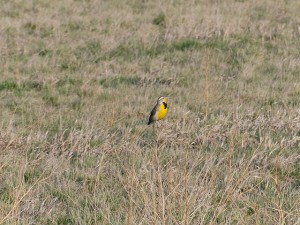Birds may help control pest outbreaks on organic farms
A recent study published in the scientific journal Agriculture, Ecosystems and Environment has demonstrated that bird populations provide major benefits to farmers by helping to control pest outbreaks on farms. It has been well established that that organic farming practices and the use of hedgerows increase on-farm bird diversity and abundance by providing habitat. However, the direct benefits of increased bird diversity have been less well established In this study, researchers quantified the direct role that birds play by using controlled releases of pest caterpillars. Caterpillars were affixed to plants throughout fields and cameras were used to record predation by birds. Researchers followed this experiment using exclosure experiments where pest damage on crops accessible to birds was compared to pest damage on crops surrounded by netting to keep birds from consuming pests. Results from the predator release experiment showed that after only seven hours, birds removed an average of 24% of caterpillar pests, with removal at some sites reaching as high as 80%. While the amount of pest predation on plants inside and outside of bird enclosures was not significantly different, the authors note that natural pest infestation was quite low at the time of the experiment, suggesting that birds may be more effective predators during periods of pest outbreaks when pest populations are high. “Pest outbreaks can be devastating to small organic farmers whose use of pesticide is restricted. Therefore, increasing the probability of pest removal by songbirds through the enhancement of bird habitat such as shrubby field margins (increasing the “wildlife-friendliness” of the farm) could be beneficial both to farmers and to birds,” the authors wrote.




